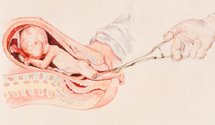Pope: St. John Chrysostom Proposed The Model Of The Early Church As A Model For Society
 Vatican Information Services reported that this morning, Benedict XVI resumed the catechesis he had begun last week on St. John Chrysostom. It’s very interesting to hear what this ancient saint had to say about the best model for society.
Vatican Information Services reported that this morning, Benedict XVI resumed the catechesis he had begun last week on St. John Chrysostom. It’s very interesting to hear what this ancient saint had to say about the best model for society.Chrysostom understood that it was not enough to give alms, to help the poor one case at a time, rather that it was necessary to create a new structure, a new model for society ... based on the new Testament.
Apparently, because of his views, St. John Chrysostom had his share of problems politically.
However "despite his kind heart, ... because of his continuous dealings with the civil authorities and institutions, he often found himself involved in political questions and intrigues, ... and was condemned to exile" where he died in the year 407.
St. John Chrysostom is a good model for all Christians, and a model just as urgently required in today’s society.
Would you, as a Christian, be prepared to go into exile for living your faith in society?
The full report from
**********
JOHN CHRYSOSTOM: A GREAT FATHER OF SOCIAL DOCTRINE
VATICAN CITY, SEP 26, 2007 (VIS) - In his general audience, which was held this morning in St. Peter's Square in the presence of more than 20,000 people, the Pope resumed the catechesis he had begun last week on St. John Chrysostom.
This Father of the Church was appointed as bishop of Constantinople, capital of the eastern
"As a true pastor, he treated everyone cordially. ... In particular, he always showed tender concern for women and particular interest in marriage and the family. He invited the faithful to participate in liturgical life, which his creative genius would make particularly splendid and attractive." However "despite his kind heart, ... because of his continuous dealings with the civil authorities and institutions, he often found himself involved in political questions and intrigues, ... and was condemned to exile" where he died in the year 407.
"Of St. John Chrysostom it was said," the Pope continued, "that God caused people to see in him another Paul, a Doctor of the Universe. ... Chrysostom's ideal vision is clearly expressed in his commentary to the first pages of the book of Genesis," in which he meditates upon "the eight works accomplished by God in the sequence of six days." The saint wishes "to lead the faithful back from the creation to the Creator, ... the God of condescension ... Who sends fallen man a letter: Holy Scripture."
The bishop of
"In addition to these three stages - God Who is visible in His creation, God Who writes us a letter, and God Who descends towards us - there is a fourth stage in the life and activity of Christians: the vital and dynamic principle of the Holy Spirit Who transforms the reality of the world. God comes into our lives ... and transforms us from within."
In his commentary to the Acts of the Apostles, St. John Chrysostom proposes "the model of the early Church as a model for society, creating a social 'utopia' ... and seeking to give a Christian soul and a Christian aspect to the city. In other words, Chrysostom understood that it was not enough to give alms, to help the poor one case at a time, rather that it was necessary to create a new structure, a new model for society ... based on the new Testament. For this reason, we may consider him as one of the great Fathers of the Church's social doctrine."
With
At the end of his life St. John Chrysostom returned to the theme of "God's plan for humanity," reaffirming that "God loves each of us with an infinite love, and therefore He wants everyone to be saved."
AG/CHRYSOSTOM/...
Labels: Christian leadership, Pope, pro-life strategy


























0 Comments:
Post a Comment
<< Home